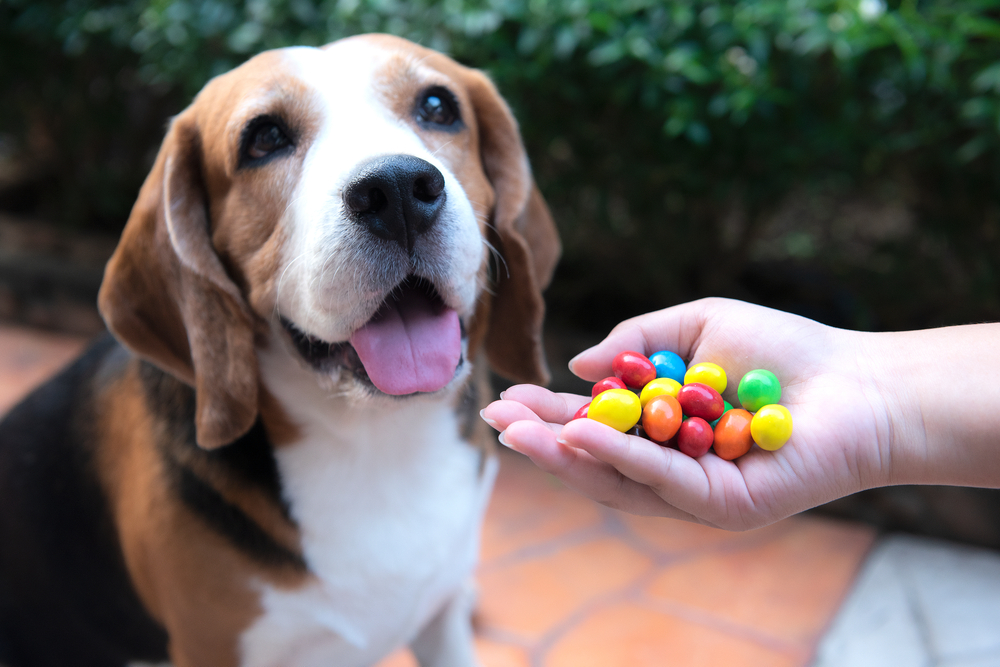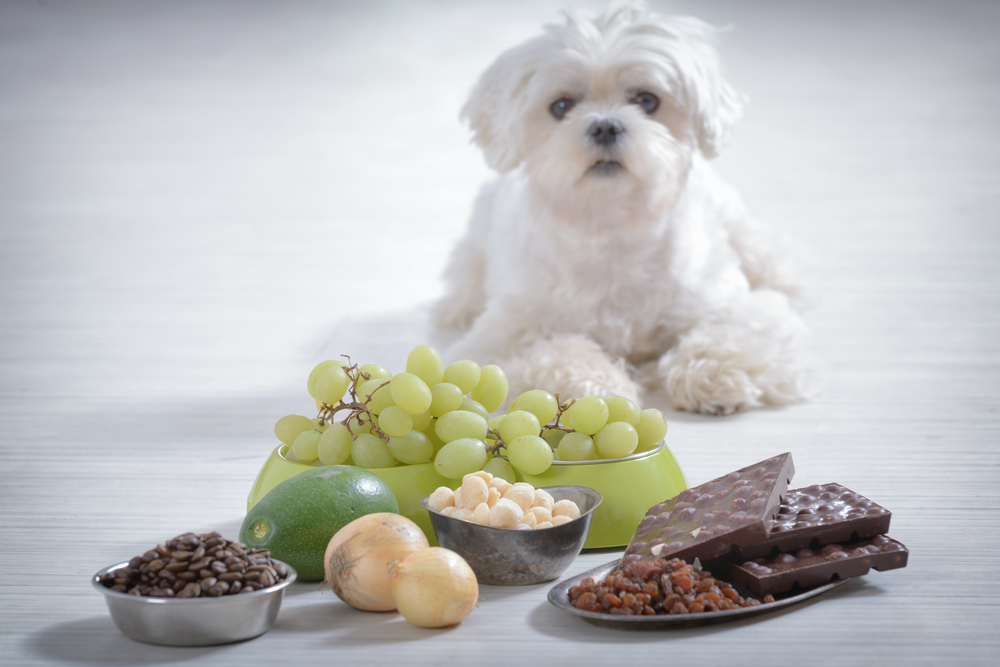Dangerous Food Your Dog Should Never Eat

Dogs are like our furry children and we want to keep them safe and healthy. We love sharing everything with them, even our food. But there are some foods for humans that your dog should never eat because they can be dangerous. Keeping these foods out of reach from your pup is important and will help to keep them safe and healthy.
Just like humans, dogs need a balanced and healthy diet in order to stay healthy. However, there are some foods that are dangerous for dogs and can cause serious health problems. Each dog may react differently with size, weight and age. Also the amount of the food ingested can affect how your dog reacts. If worried, always seek veterinary advice as it’s better to be safe than sorry.
Let’s take a look at what foods or drinks to avoid.
Common Foods That Are Dangerous for Dogs
Chocolate
Chocolate contains a chemical called theobromine, which is toxic to dogs. Even a small amount of chocolate can cause vomiting, diarrhoea, and even death in dogs. It’s best to keep the chocolate for yourself and get your dog healthy treats made for them. Each dog may react differently so watch for symptoms and contact your vet if worried.
Symptoms
- Vomiting
- Diarrhoea
- Increased thirst
- Restlessness and panting
- Muscle tremors
- Seizures
Grapes and Raisins
Grapes and raisins can also be toxic to dogs and can cause kidney failure. A sweet treat for us is not always the same for our dogs. In fact, even a small amount of these fruits can cause kidney failure in canines. The exact mechanism behind this toxicity is not fully understood but it is advised to keep grapes and raisins away from your dog.
Symptoms
- Lack of appetite
- Lethargy
- Vomiting
- Diarrhoea
- Abdominal pain
- Excessive thirst
- Excessive urination
- Breath that smells like ammonia
Onions and Garlic
Dogs are known for their strong sense of smell, and this keen sense of smell is largely due to the Sulphur compounds found in onions. When a dog ingests onions, the sulphur gas is released in the stomach and irritates the lining. This can lead to nausea, vomiting and diarrhoea. In addition, onions contain a substance called thiosulfate, which can damage a dog's red blood cells and cause anaemia.
Symptoms
- Lethargy
- Pale gums
- Difficulty breathing
- Increased heart rate
Xylitol
Xylitol can be found in ‘sugarless’ chewing gum, sweets and baked goods. It is extremely poisonous for dogs and should be kept away from your pooch. When dogs eat something containing xylitol, the compound is quickly absorbed into their bloodstreams. This can result in a potent release of insulin from their pancreas, leading to low blood sugar levels and potentially dangerous complications.
While xylitol is considered safe for humans, it poses a serious risk for dogs, so owners should always keep these foods out of reach.
Symptoms
- Vomiting
- Decrease in energy
- Staggering
- Collapse
- Seizures

Avocado
Avocados are a popular breakfast for humans, but they can be toxic for dogs. This is because avocados contain a compound called persin, which causes vomiting and diarrhoea in dogs when ingested. While most dogs will only suffer mild symptoms from persin toxicity, more serious cases can lead to dehydration, difficulty breathing, and even death.
So no avo on toast or guacamole for your best friend next time you're at your local cafe. And if you are lucky enough to have an avocado tree in your backyard make sure your dog doesn't eat the ones that may fall to the ground.
Symptoms
- Vomiting
- Diarrhoea
- Dehydration
- Difficulty breathing
Alcohol
If you want to keep your dog safe from the risk of alcohol poisoning, it's important to remember to keep all alcoholic beverages and other products out of reach. This includes everything from bottles of beer and wine to hand sanitisers, which are often stored in handbags.
Some mixer drinks may also contain xylitol which can interfere with your dogs insulin response (see above). Additionally, be sure to avoid feeding your pet raw bread dough or yeast products, as these can also lead to poisoning.
Symptoms
- Depression or lethargy
- Drooling
- Vomiting or retching
- Weakness
- Slowness in breath
- Low body temperature
Cooked Chicken Bones
When it comes to chicken, most people focus on the meat. But what about the bones? While they may not be as tasty, cooked chicken bones can actually be quite dangerous. If ingested by your dog, they can splinter and cause internal bleeding or choking. Be sure to dispose of the bones properly so your pooch can’t help themselves to cooked bones.
Symptoms
- Poor appetite
- Lack of energy
- Vomiting
- Diarrhoea
- Gagging, retching, coughing or choking
- Excessive drooling
Other foods that can make dogs sick include:
- Macadamia nuts
- Dairy products like milk and cheese
- Caffeine, coffee and tea
- Excessive salt (think too many chips!)
- Seeds from stone fruits
Prevention is Better Than Cure
While we hope you never have to deal with a situation like this, it’s important to be aware of the foods that are dangerous for dogs and what symptoms to look out for. Prevention is always better than cure, so keep these foods out of reach for your dog and clean up any fallen fruit immediately.
Remember, not all food reacts the same way in dogs. Weight, size and age can play a part in how dogs react to certain foods - so make sure you are giving them healthy treats designed specifically for canines rather than human treats.
What To Do If Your Dog Eats a Dangerous Food?
Pets are a beloved part of the family, and we want to do everything we can to keep them healthy and happy. That's why it's important to be aware of the potential dangers of letting our pets eat certain foods. If your pet eats any dangerous food and shows symptoms, it is important you seek advice and care from your veterinarian immediately. When dealing with a food-related emergency involving your dog, time is of the essence. The sooner you can get your pet to the vet, the better their chances are of making a full recovery. So if you think your pet has eaten something they shouldn't have, don't hesitate to give your vet a call.